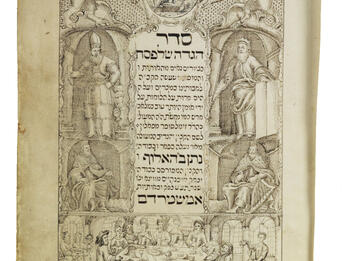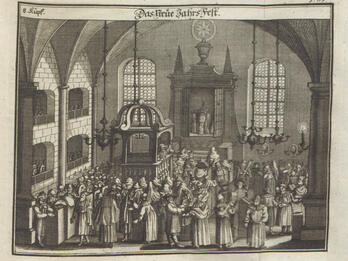My palate speaks your praise: For the Sabbath before Purim
For Shabbat Zakhor
Translated by
.
Notes
[Psalms 35:10, which is part of the prayer Nishmat kol ḥay. This line situates this poem to be recited at the relevant point within the Nishmat prayer.—Trans.]
[Mordechai’s father’s name, “Yair,” means “enlightenment” in Hebrew—Trans.]
[I.e., until my enemies were slaughtered, and I was victorious.—Trans.]
[The Jewish people.—Trans.]
[To Zion.—Trans.]
Credits
Jacob Ibn Tsur, “My Palate Speaks Your Praise: For the Sabbath before Purim (For Shabbat Zakhor: All My Bones Say, O Lord, Who Is Like You?)” (poem, Fez, beginning of the 18th century). Published in: Ephraim Hazan, Ha-shirah ha-ʻivrit bi-tsefon Afrikah (Jerusalem: Magnes Press, 1995; online, 2003), pp. 276–277.
Published in: The Posen Library of Jewish Culture and Civilization, vol. 5.




